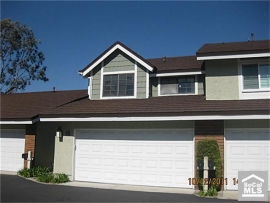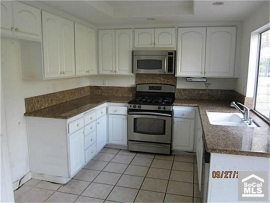The indelible symbols of the housing bubble are the empty towers left in its wake. We have them here in Orange County, and the Chinese have them in every major city.


Irvine Home Address … 3131 MICHELSON Dr #507 Irvine, CA 92612
Resale Home Price …… $390,000

If you feel so empty
So used up so let down
If you feel so angry
So ripped off so stepped on
You're not the only one
Refusing to back down
You're not the only one
So get up
Let's start a riot, a riot
Let's start a riot
Let's start a riot, a riot
Let's start a riot
Three Days Grace — Let's Start a Riot
 The Chinese have long known they have a problem with real estate values. Over the last several years, the Chinese government has enacted a series of half-hearted policies aimed to slow the increase in real estate prices. Unfortunately, the Chinese housing bubble is a runaway freight train heading for an awful crash.
The Chinese have long known they have a problem with real estate values. Over the last several years, the Chinese government has enacted a series of half-hearted policies aimed to slow the increase in real estate prices. Unfortunately, the Chinese housing bubble is a runaway freight train heading for an awful crash.
Shanghai Homeowners Smash Showroom in Protest Over Falling Prices
October 25, 2011, 4:17 PM HKT
A weekend scuffle in Shanghai over a drop in apartment prices adds to increasing evidence that China’s efforts to tame a surging property market are having an impact – even as it offers a hint of what could happen if the measures go too far.
A group of around 400 homeowners in Shanghai demonstrated publicly and damaged a showroom operated by their property developer after the company said it cut prices. Home buyers had wanted to speak with the developer to refund or cancel their contracts but were unsuccessful, according to local media. One report said the price cuts exceeded 25% per square meter.
Can you imagine? These people are on the verge of rioting over a small decline in prices — at least it's small compared to what is coming.
I remember the fervor over rising house prices here and the hostility people exhibited at the mere suggestion that prices might go down. I had to blog anonymously for the first 18 months I wrote for this blog for fear of what the crazies might do. Given the behavior of these protestors in China ransacking a showroom, it appears my fears were well founded. When people realize they bought a steaming pile of crap rather than a pot of gold, they get pretty upset.
The local media reports said an unspecified number of people were injured. The property developer, a unit of China Overseas Holdings Ltd., didn’t respond to requests for comment. Photos of the event showed broken glass in the sales office, homeowners marching with banners and a phalanx of police watching over.
Chinese media separately reported that another group of Shanghai homeowners gathered on Saturday to speak with Longfor Properties Co., after it dropped asking prices to 14,000 yuan per square meter from 18,000 yuan per square meter at a residential development in the city’s Jiading district. Longfor didn’t return calls for comment. In an Oct. 20 release, it said it posted stellar sales following an aggressive sales strategy for three of its projects in Shanghai and in the city of Hangzhou.
It's time to line up the bagholders. Anyone who buys now in China will watch their investment turn to garbage overnight.
Beijing has been tightening control of the property market this year to tame surging property prices, amid fears that unaffordable housing could lead to greater social unrest. Measures include a massive 1.3 trillion yuan program to build about 10 million public housing units for low-income earners this year, as well as limits of purchases of second homes and other restrictions.
Data in recent weeks have suggested that the curbing efforts are having an impact. China’s housing prices were largely unchanged in September from a month earlier and grew at a slower pace than in September 2010, indicating Beijing’s efforts to cool the real estate sector are having an impact.
Speculation has turned to whether authorities will now relax restrictions. On Monday, China’s eastern city of Nanjing said it would let residents borrow more money from the city’s housing provident fund to buy “ordinary homes,” in a move designed to give the struggling property sector a boost. While it didn’t elaborate, such homes are often defined as no larger than 140 square meters.
In the southern city of Foshan earlier this month, local officials announced they would lift some property-market restrictions, then postponed that move the next day “to seek further public opinion and to make an assessment on the effects of such measures”, without giving further details.
Chinese Premier Wen Jiabao on Saturday stressed that all levels of government need to reinforce China’s controls of the property market, and that tightening efforts in the property market and the construction of public homes in China are at a pivotal moment.
 It will be interesting to see how the Chinese react to this problem. They surrendered central control of all pricing and embraced a modified form of capitalism. With capitalism comes its associated ills, one of which is Ponzi viruses. Once a Ponzi virus in unleashed on the financial system it reproduces like a cancer cell until it grows so large it imperils the economy. China should have stamped out this virus years ago, but the ensuing development it created was highly sought after by the government, so they didn't recognize the danger in what they were doing.
It will be interesting to see how the Chinese react to this problem. They surrendered central control of all pricing and embraced a modified form of capitalism. With capitalism comes its associated ills, one of which is Ponzi viruses. Once a Ponzi virus in unleashed on the financial system it reproduces like a cancer cell until it grows so large it imperils the economy. China should have stamped out this virus years ago, but the ensuing development it created was highly sought after by the government, so they didn't recognize the danger in what they were doing.
They now have a Ponzi scheme so large it threatens everything. The civil unrest at this showroom is a minor skirmish in what could easily grow into a massive outpouring of violence when the crash wipes the illusions of wealth of the entire nation. If people are this upset over a 25% decline, they are obviously quite attached to their notion that prices only go up.
The Shanghai property-owner demonstration found little support on China’s Internet, where most still expressed worries that housing prices are too high. In an informal poll posted on the Twitter-like microblogging site Sina Weibo that had attracted more than 34,000 votes by Tuesday evening, 80% said they that thought it was normal for housing prices to fall and that the Shanghai protestors were just playing up the issue.
“This is an immoral action,” Weibo user Xiaobai Yeyou Naxieshi wrote in one of the 7 million property-related posts Sina had collected Tuesday on a special topic page. “Buying a house is a form of investment and every investment involves risk. If prices didn’t fall, people who can’t afford to buy an apartment would really have to wait forever.”
Interesting that your average Chinese citizen realizes people cannot be priced out forever, but the average Californian doesn't get the concept.
“Dear Government, can you please cancel my purchase of Petrochina shares? A refund based on the IPO price would be fine,” joked Linshi Renyuan. Petrochina, which debuted on the Shanghai stock market at 16.7 yuan per share in 2007, was trading at to 9.85 yuan per share at the end of the day Tuesday.
LOL! But real estate is different. Prices only go up. Real estate is an investment with no risk, right?
That said, a sustained drop in housing prices could spark its own displeasure. It could also spark criticism that Beijing’s policies don’t address long-term issues.
Outspoken Chinese real estate tycoon Ren Zhiqiang, whose properties haven’t been involved in the demonstrations, said on his microblogon Monday, “Does the government really want to solve the housing (issue) for the public or is it just using the property market as a tool to balance between economic growth and the public sentiment?”
The answer is obvious: the Chinese government doesn't care at all about providing affordable housing, it simply wants economic growth and the perception of wealth even if that wealth is an illusion based on a Ponzi scheme.
“Why doesn’t the government work on land supply, land prices and tax incentives? Why doesn’t it raise wages and lower home purchase taxes, and raise the affordability for the citizens?” Mr. Ren asked.
–– Esther Fung with contributions from Amy Li and Josh Chin
Yes, why doesn't the Chinese government work on those things. They demand they have created is artificial, just like ours was. They need to create real demand based on higher wages and increased worker productivity. The rest is an illusion.

North Korea towers in Irvine
Shanghai will be littered with empty housing towers built for high-end residents who simply don't exist. Orange County is also littered with empty housing towers built for high wage earners who simply aren't present. One of the most obvious examples of this phenomenon is the North Korea towers in Irvine, otherwise known as the Marquee at Park Place.
Most building and development happens in reaction to prices in the resale market. If developers believe they can sell a certain product for a certain price, they will provide that product if they believe they can do it profitably. Unfortunately, when the resale value is an illusion created by a housing bubble, developers build projects like these and either sell them to bagholders like the North Korea towers, or they become the bagholders like the Astoria across the street.
These false price signals sets in motion a great deal of wasted economic activity. The resources devoted to producing the worthless assets could have been, and should have been, diverted to other uses which would have had more societal value. This misallocation of resources is the problem with Ponzi viruses. For example, in the 16th century, the entire Dutch economy revolved around producing tulip bulbs. The misallocation of resources created a severe economic slump when tulip prices crashed.
Each dollar spent constructing an empty housing tower was robbed from a better use. Whatever this use might have been, it certainly would have helped the economy far more than the empty towers which serve as a testament to the folly of housing bubbles everywhere.
——————————————————————————————————————————————-
This property is available for sale via the MLS.
Please contact Shevy Akason, #01836707
949.769.1599
sales@idealhomebrokers.com


Irvine House Address … 3131 MICHELSON Dr #507 Irvine, CA 92612
Resale House Price …… $390,000

Beds: 2
Baths: 2
Sq. Ft.: 1500
$260/SF
Property Type: Residential, Condominium
Style: One Level, Contemporary
View: Yes
Year Built: 2005
Community: Airport Area
County: Orange
MLS#: S677328
Source: SoCalMLS
On Redfin: 6 days
——————————————————————————
The unit is on the 5th floor of the Marquee at park Place. This unit is a 2 bedroom plus den with 2 baths. View of surrounding office buildings. Two parking spots in the second level. Small storage locker.
——————————————————————————————————————————————-
Proprietary IHB commentary and analysis ![]()
Resale Home Price …… $390,000
House Purchase Price … $817,500
House Purchase Date …. 1/20/2006
Net Gain (Loss) ………. ($450,900)
Percent Change ………. -55.2%
Annual Appreciation … -12.1%
Cost of Home Ownership
————————————————-
$390,000 ………. Asking Price
$13,650 ………. 3.5% Down FHA Financing
4.18% …………… Mortgage Interest Rate
$376,350 ………. 30-Year Mortgage
$136,919 ………. Income Requirement
$1,836 ………. Monthly Mortgage Payment
$338 ………. Property Tax (@1.04%)
$0 ………. Special Taxes and Levies (Mello Roos)
$81 ………. Homeowners Insurance (@ 0.25%)
$433 ………. Private Mortgage Insurance
$849 ………. Homeowners Association Fees
============================================
$3,537 ………. Monthly Cash Outlays
-$289 ………. Tax Savings (% of Interest and Property Tax)
-$525 ………. Equity Hidden in Payment (Amortization)
$20 ………. Lost Income to Down Payment (net of taxes)
$69 ………. Maintenance and Replacement Reserves
============================================
$2,813 ………. Monthly Cost of Ownership
Cash Acquisition Demands
——————————————————————————
$3,900 ………. Furnishing and Move In @1%
$3,900 ………. Closing Costs @1%
$3,764 ………… Interest Points @1% of Loan
$13,650 ………. Down Payment
============================================
$25,214 ………. Total Cash Costs
$43,100 ………… Emergency Cash Reserves
============================================
$68,314 ………. Total Savings Needed
——————————————————————————————————————————————————-
November's presentatations have been moved
Due to competing demands from holiday parties, we have decided to move the November and December presentations to the classroom at the offices of Intercap Lending.
Larry Roberts is hosting a Las Vegas cashflow properties presentation at the offices of Intercap Lending (9401 Jeronimo, Suite 200, Irvine, CA 92618) on November 9, 2011. Please RSVP at sales@idealhomebrokers.com. Register online here: Las Vegas cashflow property – Intercap Lending
Larry Roberts and Shevy Akason are hosting an OC housing market presentation at the offices of Intercap Lending (9401 Jeronimo, Suite 200, Irvine, CA 92618) on November 9, 2011. Please RSVP at sales@idealhomebrokers.com. Register online here: OC Housing Market – Intercap Lending
.png)
.png)
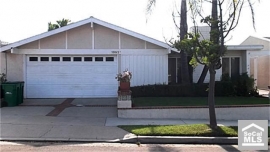
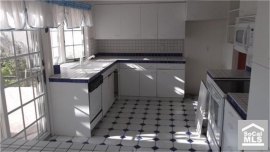

.png)







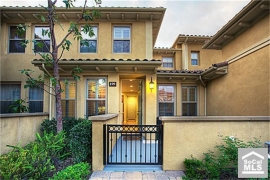
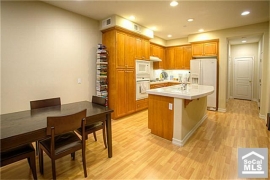





 Those statistics show just how unreliable the median is as a measure the change in value of individual homes. Nobody who bought in early 2009 has seen 20% appreciation, and nobody who bought a new home has seen 43% appreciation. The change in mix greatly distorted the median in 2009. The number reported was too low. The big rise off the bottom is nothing more than a statistical aberration created by the distortions from the changing product mix. The $/SF and the Case-Shiller indices both show a double dip as neither of these measures are impacted much by a change in sales composition.
Those statistics show just how unreliable the median is as a measure the change in value of individual homes. Nobody who bought in early 2009 has seen 20% appreciation, and nobody who bought a new home has seen 43% appreciation. The change in mix greatly distorted the median in 2009. The number reported was too low. The big rise off the bottom is nothing more than a statistical aberration created by the distortions from the changing product mix. The $/SF and the Case-Shiller indices both show a double dip as neither of these measures are impacted much by a change in sales composition.
 Absolutely fantastic, great opportunity for the first time buyer or investor, family floor plan, gourmet kitchen with Island, upgraded cabinetaries, nice sized great room with fire place, formal dining room. Upgraded wood laminated floors, front private patio. 2 bedrooms suites upstairs, plantation shutters. Just walking distances to Woodbury Elementary school and Woodbury Town Center and to the Commons. This is a must see.
Absolutely fantastic, great opportunity for the first time buyer or investor, family floor plan, gourmet kitchen with Island, upgraded cabinetaries, nice sized great room with fire place, formal dining room. Upgraded wood laminated floors, front private patio. 2 bedrooms suites upstairs, plantation shutters. Just walking distances to Woodbury Elementary school and Woodbury Town Center and to the Commons. This is a must see. 
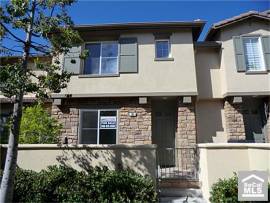
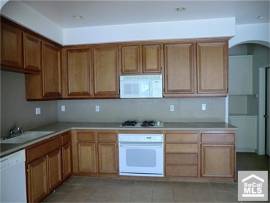









 Yes, lenders are ramping up. Reports about the declines in foreclosures usually omit the reason foreclosures declined. The implication is that lenders must have run out of people to foreclose on, so the foreclosure cleansing must be nearly over. That was never the case. The price pressure from distressed properties will not be relieved until delinquency rates are back down to historic norms and the shadow inventory is cleaned out. That process will take years.
Yes, lenders are ramping up. Reports about the declines in foreclosures usually omit the reason foreclosures declined. The implication is that lenders must have run out of people to foreclose on, so the foreclosure cleansing must be nearly over. That was never the case. The price pressure from distressed properties will not be relieved until delinquency rates are back down to historic norms and the shadow inventory is cleaned out. That process will take years.

.png)


